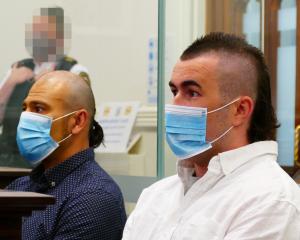Defence and crown counsel highlighted what they called extensive inconsistencies in evidence today, as they summed up in the Wellington District Court trial of a taxi driver accused of rape.
Both the complainant, then 18 and with what the defence described as questionable "emotional and psychological" stability, and the man accused of raping her - an HIV-positive Islamic Somali refugee taxi driver, then 55 - were shown to have changed their stories many times during the investigation and retrial of the September 2006 incident, counsel said.
In her closing summary, Crown prosecutor Kristy McDonald, QC, told the court Abdirazak Yussuf Mussa was surely guilty of abducting, then twice raping 18-year-old passenger.
The complainant said she felt scared of the taxi driver, her fear mounting when he turned and abandoned her route and took her to his house.
The abduction and its intent became clear when Mussa deadbolted the door behind them, locking the woman's only observed means of getting out of the house, Ms McDonald said.
There, she was raped twice, with Mussa holding one or both of her hands above her head while he used the other hand to put on condoms, Ms McDonald said.
The accused's explanation of events was "damning" and extensively fabricated, she said.
Mussa initially denied ever meeting the woman, denied drinking or having had any alcohol at the house, denied being in the city that night and denied ever having bought condoms.
Throughout the investigation, however, he had been found to have done all of these things.
He changed his story, saying she had been flirtatious, masturbated in front of him and been his willing sex partner.
Ms McDonald called his amended account a "highly sexualised fantasy, in stark contrast with the complainant's version of events".
"Did she seem to be that sexually assertive? Did she seem to be the sort of person who would come onto a taxi driver in that way?", she asked the jury.
Counsel for Mussa, Donald Stevens, QC, said the case essentially came down to Mussa's word against the complainant's.
The crown case was "based almost exclusively on her evidence" and had conclusively failed to prove the charges.
"It is worrying that a case like this can be brought before a jury," he said.
The complainant's story was missing three hours, in which time Mussa said the two drank alcohol, had sex and slept.
Afterwards, Mussa drove her home and she gave him her cellphone number.
The deadlock mentioned extensively by the Crown was simply a lock. The woman did not try to escape, nor call for help.
"She was happy to have sex with him... What had been consensual sex had later changed in her mind to non-consensual sex," Dr Stevens said.
Judge Bruce Davidson will sum up and the jury will retire on Monday.











